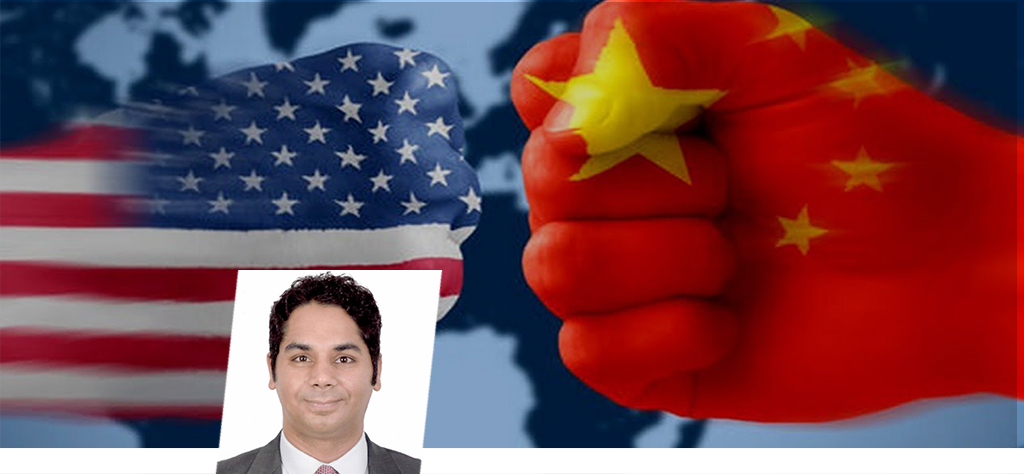In a special commentary for “The Arab Wall” website, Editor and Researcher for International Politics Journal, Amr Abdel Aty, explains there has been a consensus, extending from the Obama to the Biden administrations, that China is a threat challenging the global hegemony of the United States of America. However, he noted three differences that characterize the Biden administration’s approach , the first of which is that while Trump emphasized economics, Biden has placed politics and values at the center of his approach, putting the issues of democracy and human rights in focus, especially as China is seeking to promote its political model. This does not mean the Biden administration will overlook economic issues.
As opposed to Trump’s unilateral approach, President Biden will work on augmenting American alliances and working with them. An example is the new alliance comprising the US, Australia, India and Japan, the principal powers who have the capabilities to confront China in Asia. It is noteworthy that US secretaries of defense and foreign affairs have recently visited several Asian allies.
Finally, the Biden administration will pursue a more balanced approach, exerting pressure on some issues and seeking to cooperate on others of mutual interest, such as climate. The new approach of the Biden administration towards China is consistent with the major contours of American foreign policy under Biden, whereby the US is “back” on the world stage, human rights and democracy are central issues, and Biden seeks to develop a foreign policy in the interest of the American middle class.
Abdel Aty note similarities with Obama policies towards China, to the extent of making China assume its international responsibilities and assume the burdens of its leading role in the international order from which it benefits. Biden seeks to further integrate China into the political aspects of that order, as it is now using the international system to achieve economic gain, while leaving the US to carry political and security burdens of maintaining that system. This integration, and rise of the middle class in China may lead to pressures for democratic governance, and possibly ensure a peaceful rise, and discourage China from trying to disrupt the international system from which it has benefitted.
Abdel Aty sees it unlikely that Biden’s administration will impose new economic sanctions on China, as these would have negative consequences for the US, and due to China’s strong relations with the EU. Biden, as opposed to Trump, is not keen to sanction US allies. His administration prefers to act in concert with allies rather than proceeding unilaterally. The administration also perceives a need for cooperation with China on several issues, including climate, Iran and North Korea. The administration is likely to pursue a strategy of direct targeting on some issues, rather than strategic patience, in view of domestic American crises, the damage to US global role and image, while China succeeded in transforming economic strength to political and military might. This has pushed US allies in Europe towards an interest-based relationship with China. On the military level, US military dominance is challenged by increased Chinese spending, as well as by the problems created by American military interventions around the world. The US is also on the back foot vis-à-vis China economically and technologically, and this frames the relationship between the two countries as that of “peer competitors”.

